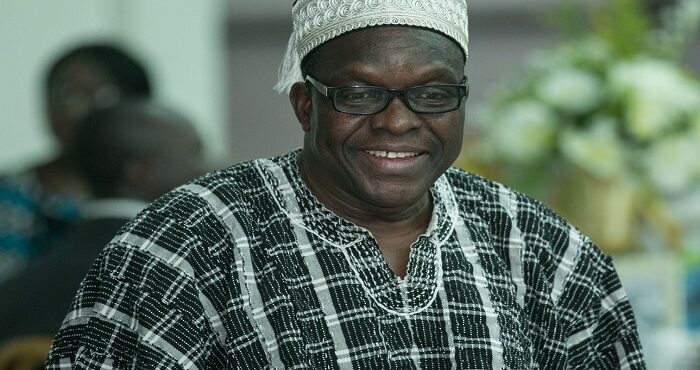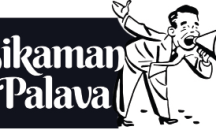Cracking the whip on leakers of sensitive and secret information in parliament

Very recently, the Speaker of Parliament Rt. Honourable Alban Sumana Kingsford Bagbin had the opportunity to caution against the practice of the leakage of sensitive parliamentary documents to the press. Addressing a staff durbar held on April 2, 2022 in the chamber of Parliament, Mr. Bagbin said “the practice reduces the reputation of the institution and what it represents in the eyes of the citizens.” He advised the staff to work as a team to ensure that Ghana’s Legislature attains its vision of developing into a model parliament worthy of emulation by other Legislative institutions.
TIMELY WARNING BY THE SPEAKER
The Speaker has, indeed, hit the nail right on the head by cautioning his charges to be circumspect about the leakage of vital and classified information on proceedings in the august House to some media personnel who for political advantage or expediency will like to twist the contents of these documents for their personal gains. If really what the Speaker is saying reflects the true state of events in parliament, then those engaged in that criminal and dastardly act must bow their heads in shame.
The parliamentarians and indeed, the entire staff of the Parliamentary Service should by now know that the institution in which they belong, which is the second arm of government- the Executive being the first and the judiciary being the third, is the most sensitive, crucial and important body in our dear country as far as democratic governance is concerned. It is a house of records, therefore, everything it does must be kept secret and well protected. If in an attempt to expose and malign the authority of this noble institution, some aggrieved members will go to the extent of releasing classified and official secret document to the media, then we are not safe in this country. The institution of parliament must be equated to National Security where vital information is kept from the public knowledge because it has the tendency to create confusion and sometimes destabilise the country.
PARLIAMENTARY FUNCTIONS
Parliament which is made up of all representatives of various constituents across the country, controls and guides the government in the day to day administration of governance. It is the ultimate authority for making laws. Across the globe, Parliament in any nation, has the powers to abolish an existing law, replace the old abolished law with new law, amend existing laws and create new laws.
The 1992 Constitution of Ghana has given our parliament a huge oversight responsibility and a lot of power to carry out various functions of holding a check on the Executive on public expenditure as well as being accountable to the people who gave them their mandate to rule this country. Parliament, as a strong institution, has the power to determine its own procedure and agenda and neither the President nor even the courts may interfere in its internal affairs.
IMMUNITY ENJOYED BY PARLIAMENT
Our Parliament enjoys a wide scope of immunity, even from court processes as provided for under the constitution. Quite apart from this internal provisions, our constitution gives parliament the power and authority to disapprove public expenditure, grants, loans, taxes and even the entire national budget. This presupposes that nothing can be done by government and for that matter the Executive arm without the approval of parliament. The appointment of Ministers, Article 71 office holders which include the Chief Justice and the Justices of the Supreme Court as well as other appointments in key positions in the various sectors of the economy is done with the tacit endorsement by parliament. That in essence shows how powerful this great institution is as far as our young democracy is concerned.
CURRENT COMPOSITION OF PARLIAMENT
Currently, the membership of our parliament which is significantly a two-party state is a hung parliament with no absolute majority of legislators. Out of the total 275 seats, the ruling New Patriotic Party (NPP) and the main opposition National Democratic Congress have a split vote of 137-137 respectively with one independent member who has decided to align himself to the ruling NPP. Unlike the previous parliament in which the Speaker normally came from the ruling party, this time round, we have a Speaker came from the opposition NDC. The situation now has made parliament very active, especially in this hung parliament. Even though, at times, there are delays in the passage of some of the bills such as the controversial E-Levy (Electronic Transaction) Bill, which took about five months before approval and passage, the Speaker to some extent, has been resolute and firm in dealing with issues in the house. The two deputies, Messrs Joseph Osei-Owusu (First Deputy) and MP for Bekwai and Andrew Asiamah Amoako (Second Deputy), the only independent candidate, have all performed well so far.
Currently, the house has 40 female MPs with 20 each from both the ruling NPP and the opposition NDC. Even though the representation of women in our parliament continues to be very low, those available continue to make an impact in parliamentary proceedings as they articulate the concerns of their constituents effectively.
CONSULTATION AND CONSENSUS BUILDING AMONG MPs
It is important to state that the present state of our parliament where there is no clear majority in the house with the two main parties having 137-137 MPs, demands that there should be adequate consultations by the two parties as well as dialogue and consensus building to avoid the unnecessary conflicts which continue to be the bane in the house most recently. The lack of consultation and consensus building between these two parties in recent times, generated heated arguments and in some cases resulted in commotion and fight among our MPs.
That lack of trust between the two parties in the house in which one party would like to outdo the other, has necessitated the leakage of vital and official documents to media personnel sympathetic to each other to either publish or air information to defame or malign the two parties. It is time for our MPs to know that the positions they occupy are so sensitive, therefore, they ought to behave maturely and professionally.
LIVING UP TO THAT TITLE HONOURABLE
For the Speaker to have cautioned members and, indeed, the staff of the Parliamentary Service to stop giving out parliamentary documents to the press presupposes that the practice is on-going in the house and this must stop immediately to protect the integrity and sanctity of our august Parliament. Members should know that the people gave them their mandate to represent and serve their interests in parliament not to involve themselves in issues detrimental to the progress of our dear country. We call them honourable and we expect them to do things that will conform to the titles we have bestowed on them.
It is time the leadership of the House for that matter the Speaker took steps to crack the whip to stop all the negative acts including the leakages of vital and sensitive documents to the media to protect the integrity of Parliament and make it more sensitive and proactive in its avowed constitutional mandate in Ghana.
Contact email/WhatsApp of author:
0277753946/0248933366
By Charles Neequaye













